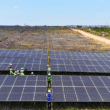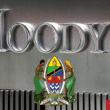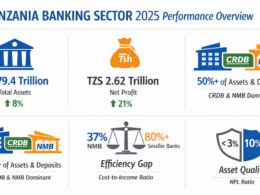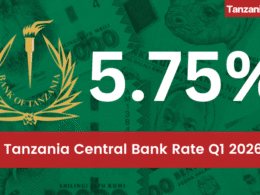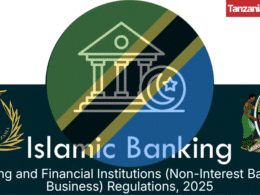TanzaniaInvest interviewed Theobald Sabi, Managing Director of the National Bank of Commerce (NBC)-Tanzania’s third-largest bank-that offers a wide range of banking products and services namely personal, retail, business, corporate, investment, and Islamic.
Sabi shares its strategy to scale up the provision of credit to corporates, MSMEs, agriculture and retail sectors as a way to promote commerce and industrialization, and heavily invest in fintechs and banking agents as a way to reduce the financial inclusion gap.
NBC’s main focus is on corporate finance, but you also serve businesses, SMEs, and retail, and also expanded into Islamic banking. What are your competitive advantages in a market crowded with so many banks? Which new markets and segments are you pursuing?
We have invested heavily in research for the past two years and we have managed to come up with a value proposition that is closely aligned to the needs of the retail and micro, small & medium enterprises (MSMEs) segments.
We came up with a value proposition that is closely aligned to the needs of MSMEs. We also support farmers with short-term loans and agriculture insurance.
We also support farmers by giving them short-term loans. Recently we launched agriculture insurance which covers against the loss of crops due to natural disasters, such as hail, drought, and floods.
We have now embarked on a journey that will eventually increase access to finance to micro-entrepreneurs who employ eight million Tanzanians and contribute 35% of GDP.
This has come after our offering of financial skills development through the NBC Business Club. The Club offers an opportunity for entrepreneurs to network, and through partnerships, we have been offering professional and specialized training in areas of international business, tax, and good business standards.
We also support MSMEs. This year, we launched NBC Kua Nasi, a product that is doing very well in the market and is the most affordable solution.
As part of our support to the Government on local content, we have launched unsecured lending products for MSMEs who are working with government entities as well large corporates and multinationals. These tailor-made solutions are helping MSMEs who have good business proposals but they lack collateral to access funding.
We have launched unsecured lending products for MSMEs who are working with government.
We have re-engineered the process of accessing finance, and it’s now simple and easy for small entrepreneurs to access loan services at any of our branches.
To ensure entrepreneurs get financial service conveniently, we have increased our footprint using bank agents. We now have close to 4,000 agents across the country, and we will be adding more in order to cover each and every ward in Tanzania.
We have also seen momentum on digital services and a big drift is on Government tax and non-payments whereas our customers are paying through the link that we have with the Government e-Payment Gateway (GePG).
As one of the lead banks for corporates, we aim to ensure we facilitate tax collection for the government in a manner that our clients will find convenient.
Strategically, we will scale up through partnering with fintechs to develop products that will attract the unbanked population to start using banking services and a result to reduce the financial inclusion gap.
We will scale up through partnering with fintechs to develop products that will attract the unbanked population and reduce the financial inclusion gap. We have 4,000 banking agents across the country and we will be adding more.
We will continue providing investment banking and trade finance solutions to corporates in Tanzania as we have done so over the last five decades.
Talking of financial inclusion, access to credit remains a challenge with interest rates averaging 16% in Tanzania. What does it take to unlock credit to Tanzania’s productive sectors? What is NBC’s strategy in this regard and which products and services are you developing to scale up financial inclusion?
NBC is pioneering interest rate reduction in Tanzania. For example, NBC is now offering agricultural loans at a maximum of 10% interest rate as long as the loan exposure is not exceeding TZS 1 billion for a single client.
This is to support MSME’s who are dealing with agriculture the agricultural value chain. Salaried employees are given loans at up to 13% interest rate. Most of these loans are going to support their small businesses outside work.
On the other hand, as Credit Reference Bureau in Tanzania is building more robust records, it is now becoming easy to profile borrowers as per their risk grade, and eventually, low-risk customers will enjoy lower interest rates.
NBC Shambani and Kua Nasi were designed specifically to scale up financial inclusion. These products were implemented following extensive research that was conducted in collaboration with the Financial Services Deepening Trust (FSDT).
NBC has also partnered with the Private Agricultural Sector Support (PASS), the Tanzania Agricultural Development Bank (TADB), and the African Guarantee Fund (AGF) to support the extension of credit to SMEs.
NBC continues to hold various Business Club forums to educate customers on NBC offerings and how to run sustainable businesses.
NBC is investing in the digital space massively. We are investing in digital financial services solutions to provide our customers with convenience and also efficiencies. Our digital solutions include Mobile Banking Platforms, Internet Banking for Corporates and individuals.
In October 2021, President Samia launched the Government’s Economic Recovery Plan worth TZS 3.62 trillion, and the IMF has reviewed upwards its economic forecast for Tanzania for 2022 and 2023. Which role do you aim to play in the socio-economic development of Tanzania? What are your ambitions in terms of growth and market share, and what are the main challenges?
NBC has been a key partner of the Government on socio-economic development not only by supporting tax and non-tax revenue collections but also by funding the Government on key strategic projects.
NBC is one of the top three banks on tax and non-tax revenue collections and our ambition is to be the key Government partner in driving revenue collections.
The Government has set out a blueprint for economic growth, and as the bank in the country, we understand the importance of financial institutions to propel economic growth.
We will scale up our provision of credit to the corporates, MSMEs, and the retail sectors as a way to promote commerce and industrialization.
We will scale up our provision of credit to the corporates, MSMEs, and the retail sectors as a way to promote commerce and industrialization.
Our focus on Agriculture continues on the back of our Kua Nasi, Shambani, and BancAssurance services
We are a bank that is local but internationally connected through our pan African banking Group-Absa-so we will play a significant role to promote investment flows into Tanzania’s mining sector, blue economy, tourism, and manufacturing.
We continue to invest in digital platforms that support the Government to achieve Electronic Government (eGovernment). Such investment includes GePG collections gateway enhancement, MUSE platform (Government Accounting System), and other Government digitization projects.
We will play a significant role to promote investment flows into Tanzania’s mining sector, blue economy, tourism, and manufacturing.
The challenges that we foresee on economic recovery are not peculiar to Tanzania but rather global, and to be specific they are connected to the uncertainties around the Covid-19 pandemic.
Our economy does not operate in isolation and as the world continues to navigate through this challenge our economic plans will be subjected to some impacts that will come from this pandemic.
The business community’s belief is that the measures and approaches taken by the Government toward this challenge are in the right direction to foster economic recovery.



